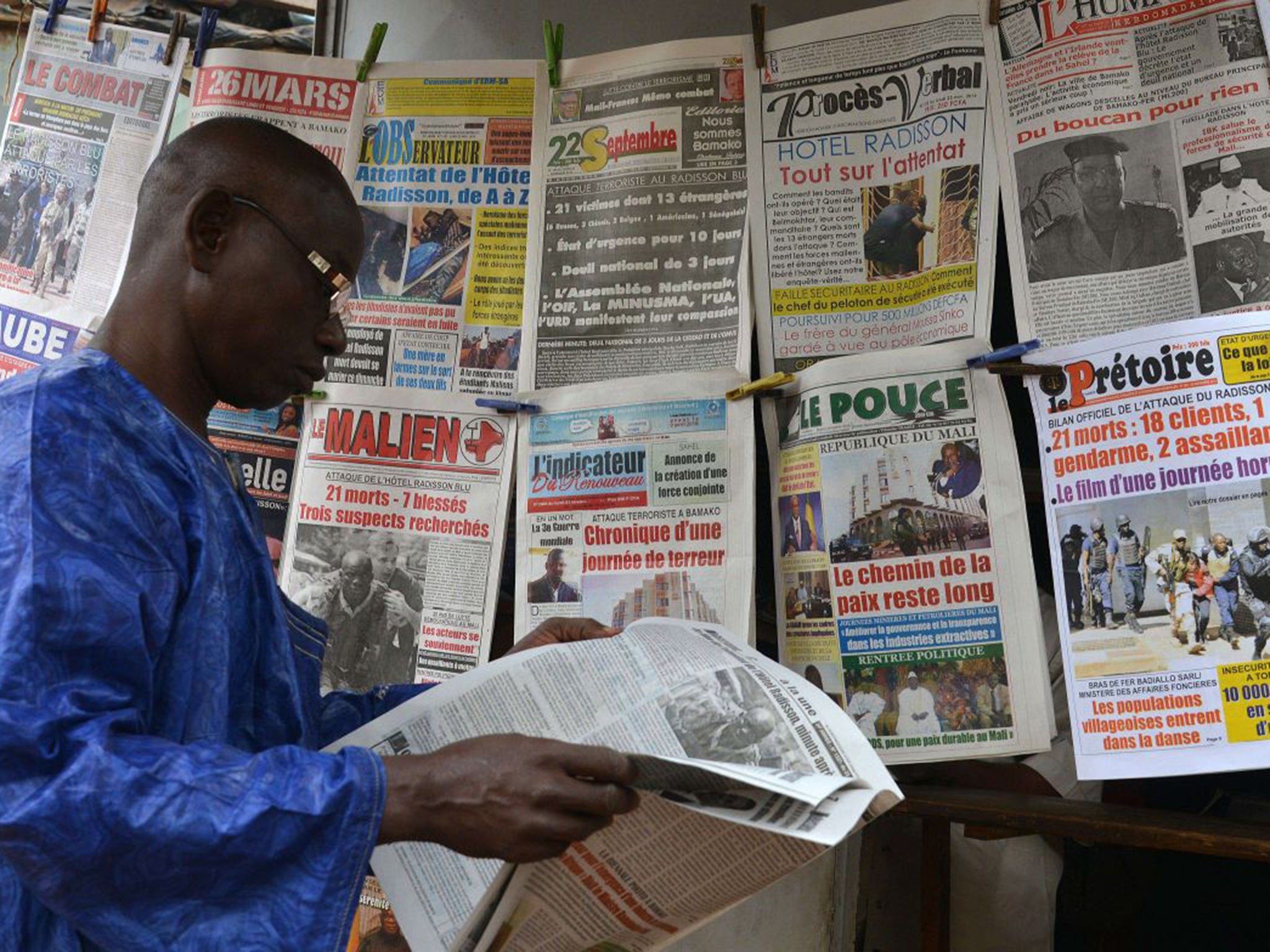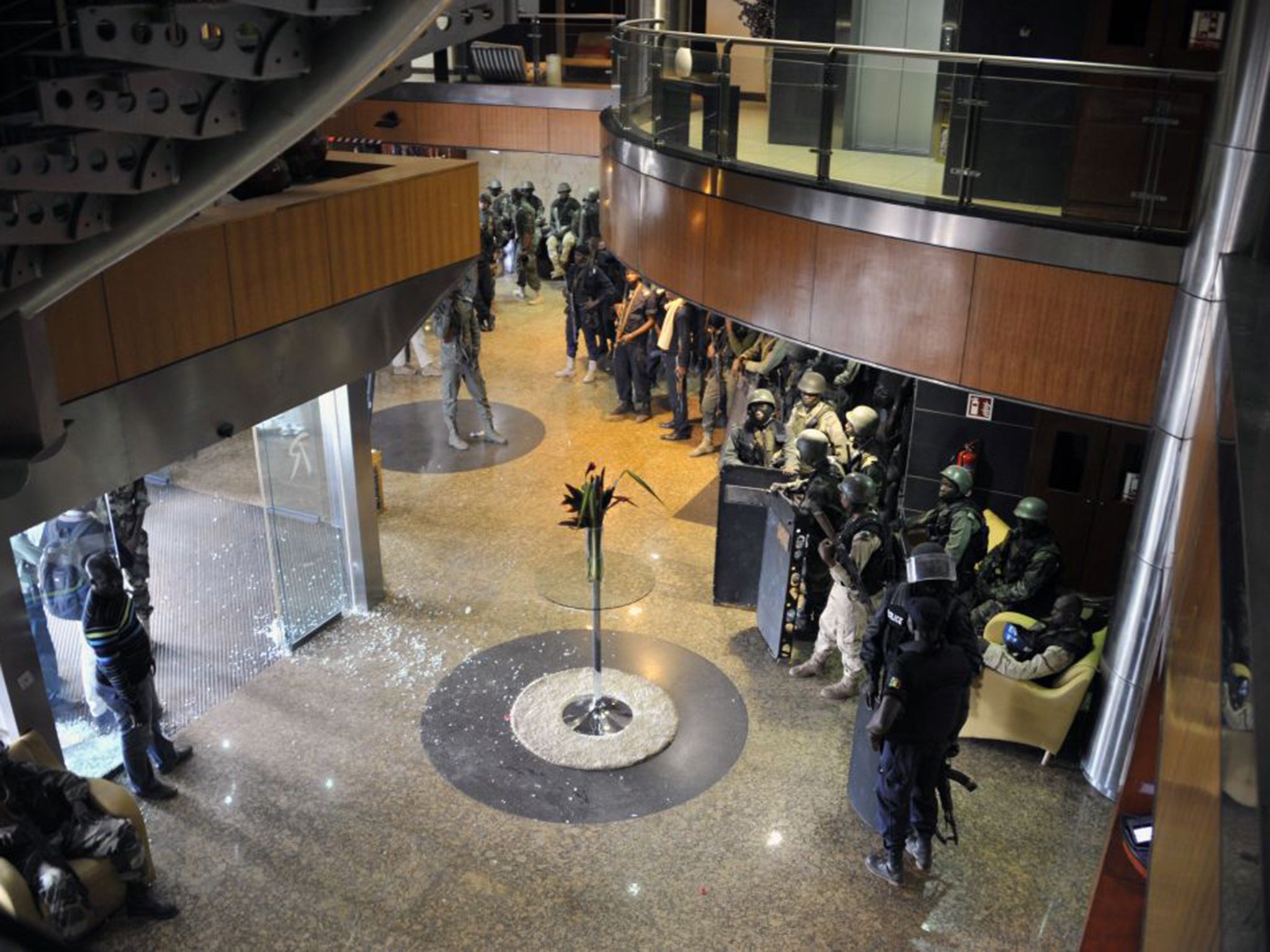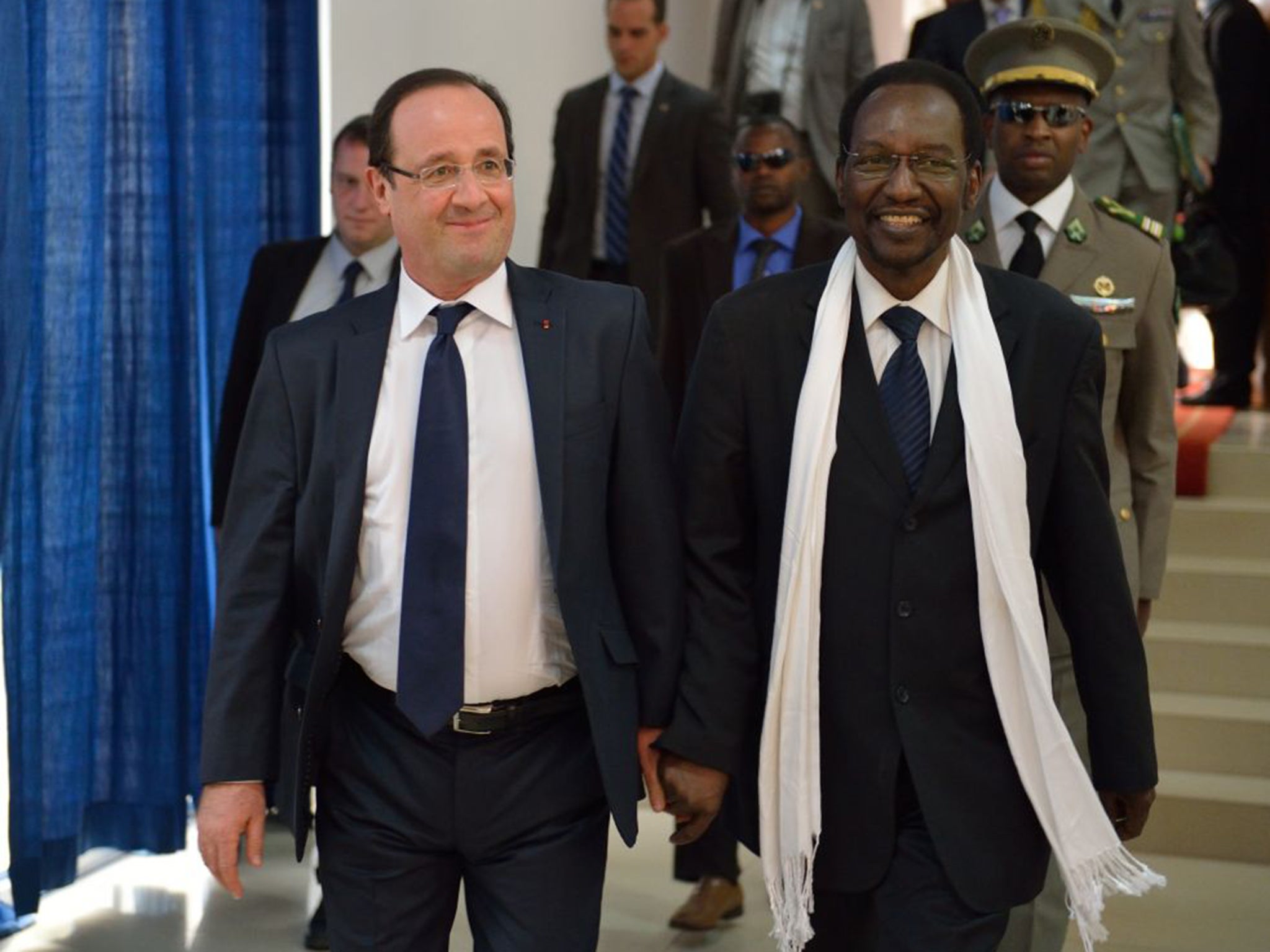Mali Bamako hotel attack shows the country's continuing need for French military help
Despite the return of the jihadists, and continuing violence, it is the French presence which has introduced a degree of stability

Francois Hollande’s visit turned into a wonderful party. The people of Timbuktu put on their most colourful clothes, danced to and sang to music being belted out from loudspeakers and cheered the man who had delivered them from vicious Islamists.
The French president did not look like a triumphant Caesar, instead he seemed taken aback in his navy blue suit and tie and buttoned up white shirt as he was mobbed by the crowd. Journalists mused on how Tony Blair would have milked the moment
But even as Mr Hollande’s helicopter departed after the three hours and 48 minutes trip, there were ominous signs that the breathtakingly swift 23 day campaign by French forces which had driven the jihadists back to the borders masked trouble lying ahead.
Malian soldiers were becoming casualties of land mines laid by al-Qaeda in Maghreb (AQIM) and their allies: there were ambushes on the roads to the north.: there was a stand-off between French forces and their Malian partners who were not being allowed into parts of the town of Kidal due to fears that they would take murderous revenge on the Tuareg community who had been blamed for introducing strife into the country by starting a rebellion for a homeland.

The attack on the Radisson Blu hotel in the capital, Bamako, brought what has happened in Mali since that great day of hope in Timbuktu into focus. And a statement today in Paris that 40 members of French special forces took part in storming the hotel showed how Mali continues to need French military assistance almost three years on.
But Malians don’t necessarily see it that way, believing the French are in the country to defend their own interests. “If we are wrong and the French are being straight, then why are there so many criminal and terrorist gangs still here,” asked Ibrahim Maiga, a schoolteacher, yesterday. “Is it the case that it is the presence of the French which is attracting the terrorists?”

AQIM is back, its’ affiliate al-Mourabitoun had claime credit for the assault on the hotel. When, on sunday evening, the President, Ibrahim Boubacer Keita, said he doubted if al-Mourabitoun was responsible, there was momentary expectation that he would name Isis as the ones guilty. Instead, he said the Macina Liberation Front was to blame.
The name, unknown to most outside Mali, illustrates the multiplicity of extremists in the country. The Macina liberation Front came to prominence in central Mali at the start of the year. Led by a marabout, religious leader, Amadou Kouffa, with a core of ethnic Fulani fighters. It killed 13 people, including five UN peacekeepers at the Byblos Hotel in the town of Severe in the Summer, in one of its attacks.
Al Murabitoon is active in northern Mali carried out the first major terrorist attack in Bamako in March killing five people, including a Frenchman and a Belgian at a nightclub. AQIM, which has its roots in the bloody Algerian civil war in the 1990s, is the largest and most well known of the Salafist groups in the Sahel and has killed hundreds of people in dozens of attacks in the region. Mokhtar Belmokhtar, who organised the Algerian gas plant attack in 2013, killing 37 people, had led both al Murabitoon and AQIM in the past and has been the target of a number French and American assassination efforts.
Ansar al-Din, a Tuareg group, led by Iyad ag Ghaly, has also been linked to the Radisson raid. It captured Timbuktu during the Islamist onslaught of two years ago, destroying some of its historic shrines, burning manuscripts and punishing and expelling musicians. It has demanded the establishment of an independent, Islamist homeland for Tuaregs.
The French military’s Operation Serval, which saved Mali from the jihadists, deployed a force of 4,000 with helicopter-gunships, artillery and armoured cars. As the supposedly beaten enemy regrouped and began to infiltrate back in from neighbouring states in increasing numbers, Operation Barkhane was launched last year with a thousand troops stationed in Mal and 2,000 more spread across the Chad, Burkina Faso, Mauritania, and Niger. Malian troops , meanwhile, have received training from EU states including the UK.
It is clear that without French intervention, the Islamists would have swept through into the capital, Bamako. And, despite the return of the jihadists, and continuing violence, it is French presence which has introduced a degree of stability helping to enable a peace deal struck with an umbrella group of Tuareg organizations and the government last Summer.
The Malian forces, long considered useless at fighting, but good at carrying out coups, have improved significantly following training. As members of its special forces came out of the Radisson Blu after storming the hotel with American as well as French, help, there was clapping and cheers from a crowd who, in the past, were likely to treat them with hostility and fear.
Yet, there is often criticism of the French, even from Malian armed forces. “They are too close to the Tuaregs, they protect them. They had protected them for a long time”, said Major Ousmane, a recently retired soldier of 14 years.
The officer, who did not want his family name made public, took part in the campaign to recapture the north from the Islamists. He maintained: “ We lost an opportunity then. At that time, when we had won in Timbuktu and Gau and Kidal, we had the opportunity to smash the terrorists. But the French would not let us into Kidal, they put the Chad soldiers in there. All Western countries play games and it is the same with the French.”

Some insist the French presence in Mali is primarily commercially motivated. Speaking at a café in Bamako, Amadou Sissoko, a businessman, was convinced that “there are lots of minerals, precious metals, in the north, that’s why they are there. It is in their interest to keep that area unstable.” His companions murmured agreement
The Radisson Blu hotel was due to host meetings to implement the peace accord between the government and Tuaregs who want to establish an autonomous region, Azawad. “ The attack was targeting the peace agreement”, maintained Sidi Brahim Ould Sidati, an official of the Coordiantion of Azawad Movement. “ The jihadis are in different groups, but their goal is the same, to destroy the peace process. We should remain united and not blame each other and our allies for the sake of our poor country.”
Join our commenting forum
Join thought-provoking conversations, follow other Independent readers and see their replies
Comments
Bookmark popover
Removed from bookmarks